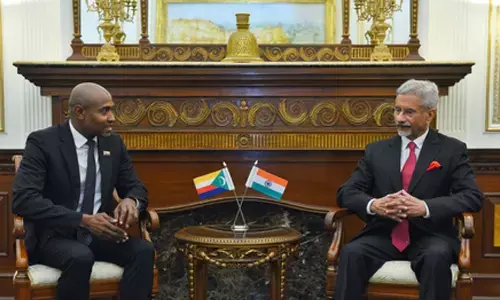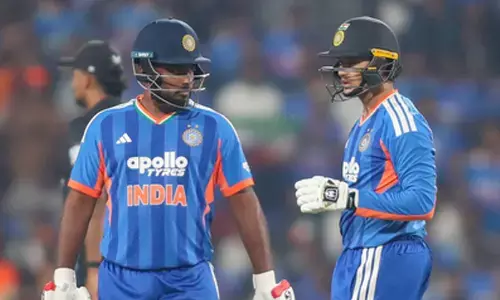Cinema as a political medium is still subjective

When the first Dravida Munnetra Kazhagam government ascended to power in 1967, it was the triumph of a heady mix of mass strategies and political moves which had swayed the Tamil population into overwhelmingly voting them to power. As a case study, the Dravida movement is worth a deep analysis for the very effective manner in which they used mass media to propagate their ideals and ideology to telling effect.
In Chennai, a whole team of wordsmiths and theatre professionals who later went on to become very successful matinee idols ushered in a new mode of governance, ostensibly on the basis of social equality and justice. Cinema, with political undertones, played an efficient mouthpiece for the message to be carried across, far and wide.
This was typically a Tamil Nadu, regional party phenomenon for a few decades to come. In the Telugu states, barring a ‘spit and scoot’ style of filmmaking by maverick filmmaker Ram Gopal Varma in recent times (his biographies of NTR and recently a film on Chandrababu Naidu readily come to mind), the trend had virtually died out, as the film watchers didn’t take a fancy to the brazenly, one-sided depiction of the netas. One has to wait and watch how the public take to the impending release of ‘Razakar’, a production bankrolled by a BJP leader, which has created a limited buzz already.
Hindi cinema had woken up to its potential over the past decade with Akshay Kumar being a brand ambassador for many public service campaigns of NDA-I like construction of toilets. Then there were controversial films like ‘Kashmir Files’, ‘Tashkent’ and recently ‘Kerala Files’ which showcased the pet ideological standpoints of the saffron party like persecution of Kashmiri Pundits, the mystery behind the death of Lal Bahadur Shastri and the ‘love jihad’ controversy, which continues to be a touchy issue all over. Biographical depictions of Narendra Modi, Atal Behari Vajpayee, and the forthcoming venture on Veer Savarkar go on to highlight the fact that cinema as a medium is still fascinating for the BJP ideologues.
With a longer retention potential of these political-themed productions by exhibiting them on social media, satellite channels and OTT platforms, campaign strategies have taken new directions for the ideologically driven political parties. How successful they would be able to sway public opinion in their favour is still an enigma to all these outfits, which use a bouquet of options to keep themselves in public eye.
For film scholars and those who have been tracking trends of the mass media, it is a vital area to explore and educate their target audiences. After all, the challenges are manifold in a country like India where the variety of entertainment options, the genres of filmmaking which appeal to audiences are different from state to state, by and large. While a linear, clutter-free narrative is considered the best method in storytelling, the temptation to go subjective, obfuscate facts and rework on the subject to suit a one-sided standpoint has often marred the standalone merit of such films.
Political cinema is still a nascent medium in India, which should be freed from the hands of propogandists and evangelists who want to serve a limited objective. On the other, if an independent effort is made to picturise lives and times of our leaders, that too is thrashed around, by self-serving vested interests, which makes it difficult to believe that we are a sane lot of people who turn insane when our netas are brought under the spotlight.














